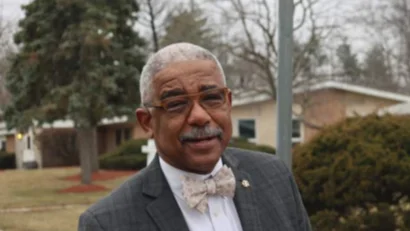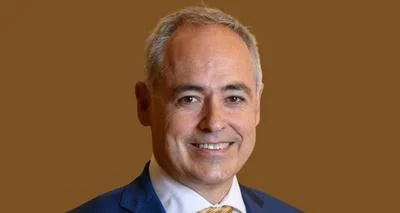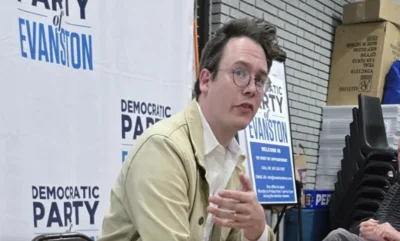Shawn Jeffers, Former Executive Director at Little City Foundation | littlecity.org
Shawn Jeffers, Former Executive Director at Little City Foundation | littlecity.org
The listed appropriations included grants of $250,000 and $168,740 if two, each designated for programs or services funded by the State of Illinois.
These appropriations represent state-level funding authorized by lawmakers, reflecting what was approved in the budget, not necessarily disbursed. The funds cover only State of Illinois support and exclude federal, local, or other public sources.
Founded in 1959 by A group of parents who dreamed of a revolutionary environment for their children with intellectual and developmental disabilities to learn, grow, and reach their full, unique potential., Little City for Community Development states that its mission is: “To serve children and adults with intellectual and developmental disabilities by providing the best options and opportunities to live safely, learn continuously, explore creatively, and work productively throughout their lifetime.”
You can learn more about the organization at its website.
In its most recent IRS Form 990 filing filing for tax year 2024, the organization reported $1,068,410 in total revenue.
In terms of staffing, the organization spent $435,672 on salaries and reportable employee compensation in 2024, along with $11,870 in additional non-salary compensation such as retirement benefits, housing allowances, or travel stipends.
Combined, these totaled $447,542 in staff-related costs, which equates to 41.9% of total reported revenue.
At the beginning of 2024, Little City for Community Development had $3,848,240 in assets. By the end of 2024, that figure had changed to $4,137,880, indicating a 7.5% growth in overall holdings.
However, a Chicago City Wire analysis found that IRS filings frequently contain discrepancies when compared with publicly disclosed government grant reports and budgets.
Little City for Community Development is one of hundreds of nonprofits across Illinois that receive substantial support from state taxpayers while also fundraising privately.
In 2025, Illinois lawmakers introduced House Bill 1266, also known as the Department of Government Efficiency (DOGE) Act. The proposal would create a new oversight body within the Office of the Auditor General tasked with identifying cost-saving measures, reviewing agency performance, and advising on audit priorities. If passed, DOGE could bring additional scrutiny and performance evaluation to taxpayer-funded organizations.
According to ProPublica, Illinois has more than 78,000 active tax-exempt organizations, including nearly 60,000 classified as charitable nonprofits. In their most recent IRS filings, these groups reported a combined revenue exceeding $156 billion.
| Fiscal Year | Total Grants/Contracts | Total Taxpayer $$ |
|---|---|---|
| 2024 | 2 | $418,740 |
| Term | Name | Title |
|---|---|---|
| 2024-2024 | Amir Kapadia | Executive Vice President |
| 2024-2024 | Andy Richmond | Trasurer |
| 2024-2024 | Chad Werkema | Assistant Secretary |
| 2024-2024 | Christopher Taylor | Chief Financial & Admin Of |
| 2024-2024 | Dale Rublaitus | Vice President |
| 2024-2024 | Gil Fergus | Secretary |
| 2024-2024 | Gregory Burns | President |
| 2024-2024 | Heather Ritter | Vice President |
| 2024-2024 | Jeff Julian | Vice President |
| 2024-2024 | Jennifer Gavelek | Vice President |
| 2024-2024 | Shawn E Jeffers | Executive Director (7/1/22-4/30/23) |
| 2024-2024 | Tim Desmond | Vice President |
| Year | Name | Title | Compensation |
|---|---|---|---|
| 2024 | Shawn E Jeffers | Executive Director | $290,978 |





 Alerts Sign-up
Alerts Sign-up